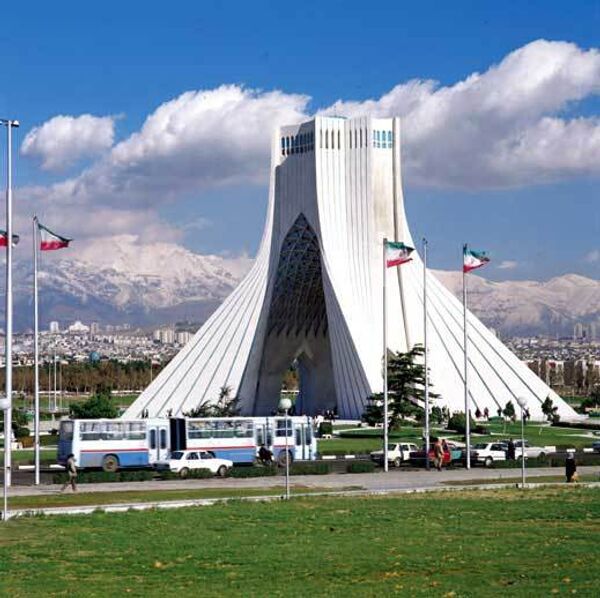MOSCOW. (RIA Novosti international commentator Ivan Zakharchenko) - On Friday June 12, Iran will hold presidential elections where passions are expected to run high and voters will be more active than they ever were during the Islamic republic's 30-year history.
The results of the vote will determine whether current President Mahmoud Ahmadinejad, now openly dubbed "dictator" will remain in power. However, it would be premature to speculate on whether Iranian society will change even if he steps down.
Ahmadinejad's rivals in the dramatic race, the media often refer to as a "smear campaign", are former prime minister Mir Hossein Mousavi, a reformist candidate, former parliament speaker Mehdi Karroubi, another advocate of change, and Mohsen Rezaei, the conservative former head of Iran's powerful Revolutionary Guard.
Each candidate makes passionate speeches promising a better life to the cheers of their supporters. But none of them has a clear-cut program or proposes specific measures, while making only declarative statements.
Although opinion polls suggest that Ahmadinejad, 52, will sweep 55% of the vote in the first round, his rivals dispute the forecast. Indeed, the incumbent president won the 2005 election, when most advocates of renewal simply abstained from voting. This time around, local observers say they will vote, if only to prevent Ahmadinejad from winning again.
Incidentally, Iran still maintains the Revolutionary Guard and the Basij Force, a paramilitary elite unit, who are told what candidate to vote for.
Nevertheless, Mousavi, 67, should not be underestimated. During the war with Iraq, it was Mousavi who prevented a collapse of the country's economy with a series of harsh policies, unfailingly effective at the time.
The two rivals are often likened to [Josef] Stalin and [Mikhail] Gorbachev, or to George W. Bush and Barack Obama by analysts who assume Iranians want change as in America and are therefore happy to vote for anyone other than the incumbent president they are tired of. Ahmadinejad is being severely criticized for economic problems, including a surge in housing prices, and for Iran's international isolation which prevents the country from playing a more active role in the region and from throwing off economic sanctions.
According to some analysts, the current president is dividing the nation rather than uniting it. However, Mousavi, who has labeled Ahmadinejad a "dictator," could fail to live up to his voters' expectations just as easily, considering that Ahmadinejad took over from Mohammad Khatami after local "perestroika" plans ended in fiasco. Even if he is defeated by the critics of fundamentalism, the change of government might still fail to bring real change to the country.
As for Iran's nuclear programs, nothing will change here. This program was launched even before Ahmadinejad, by Mousavi's government in fact. On the other hand, if he wins, Iran's nuclear policy could become more open to the international community, and Tehran could possibly agree to clarify certain issues for the IAEA.
The prospects of U.S.-Iranian relations will also largely depend on whether Iran manages to convince the world that its uranium enrichment program is not aimed at making nuclear weapons. Until - or unless - it does, Iran will be facing sanctions by the UN Security Council, and its reforms will be condemned by local fundamentalists.
The opinions expressed in this article are the author's and do not necessarily represent those of RIA Novosti.



